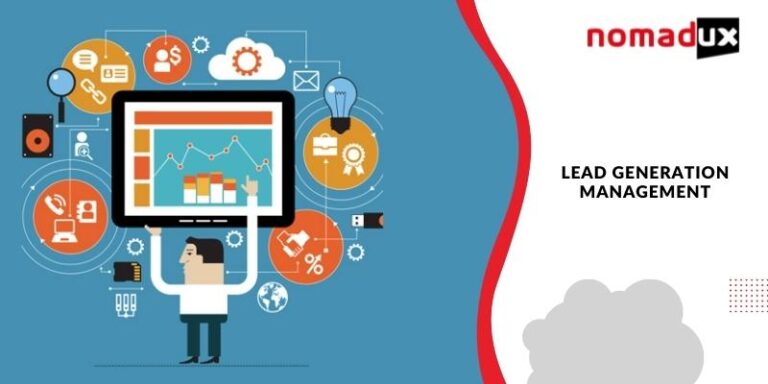Navigating the Complexities of Acquisition and Contract Management: Overcoming the Challenges
Acquisition and contract management play a crucial role in ensuring the success of an organization by helping to control costs and providing the delivery of goods and services. However, managing these processes can also present several challenges, including negotiating favorable terms with suppliers, ensuring contracts comply with relevant laws and regulations, and tracking and managing the performance of contracts.
In this blog, let us talk about the challenges in the process and how to overcome them.
Challenges Of Acquisition Management
Acquisitions are a critical component of business growth and expansion. They can help organizations expand their product and service offerings, enter new markets, and increase their customer base. However, acquisition management can also present significant challenges that organizations must overcome to realize the full benefits of these transactions.
Due Diligence
One of the biggest challenges of acquisition management is conducting thorough due diligence. Due diligence is thoroughly reviewing a target company before making an acquisition. It is essential to ensure that the target company is a good fit for the acquiring organization and to identify any potential risks or liabilities that may impact the transaction.
However, conducting due diligence can be time-consuming, complex, and expensive. Organizations must gather and review a large amount of information, including financial statements, legal documents, and contracts.
Integration and Culture
Another challenge of acquisition management is integrating the target company into the acquiring organization and managing cultural differences. Integrating a new company into an existing organization can be a complex and time-consuming way that requires careful planning and execution.
To overcome this challenge, organizations can consider the following:
Develop a clear integration plan:
Organizations must develop a clear integration plan that outlines the steps and timeline for integrating the target company into the acquiring organization. This plan should include a timeframe for integrating operations, systems, and processes and a communication plan for employees and stakeholders.
Foster a positive cultural fit:
It is essential to ensure that the target company’s culture is a good fit with the practices of the acquiring organization. Organizations must work to foster a positive and productive working relationship between employees from both companies. This can include team-building exercises, open communication, and opportunities for cross-functional collaboration.
Financial Challenges
Financing an acquisition can also present significant challenges for organizations. Acquiring companies must ensure they have the financial resources to pay for the target company and to support its operations post-acquisition.
To overcome this challenge, organizations can consider the following:
- Consider alternative financing options: Organizations can explore alternative financing options, such as private equity or venture capital, to help fund their acquisitions.
- Conduct a thorough financial analysis: Organizations must conduct a detailed financial analysis of the target company to ensure they clearly understand its financial situation and potential risks.
- Develop a financial plan: Organizations must develop a comprehensive financial plan to ensure they have the resources to support the target company post-acquisition. This plan should include a budget for ongoing operations and a method for paying off any debt.
Acquisition management can be complex and challenging, but by taking a strategic approach and planning, organizations can successfully navigate the process and realize the full benefits of these transactions.
The Challenges of Managing Complex Contracts
Managing complex contracts can be challenging and time-consuming, especially for organizations with an extensive contract portfolio. These contracts often involve multiple stakeholders, detailed terms and conditions, and a significant amount of legal language. If not adequately managed, complex agreements can lead to disputes, costly errors, and missed opportunities.
Identifying The Challenges Of Complex Contracts
The first step in overcoming the challenges of complex contracts is to understand what makes them so difficult to manage. Some of the common challenges include:
- Lengthy and complex legal language: Complex contracts often involve a significant amount of legal terminology, making it difficult to understand their terms and conditions.
- Multiple stakeholders: Complex contracts often involve multiple stakeholders, each with their priorities and objectives.
- Detailed terms and conditions: Complex contracts often have clear terms and conditions that must be carefully managed to ensure compliance and mitigate risk.
- Changes to the contract: Changes to the agreement, such as amendments or modifications, must be managed carefully to ensure they are appropriately documented and communicated to all stakeholders.
- Performance monitoring: Monitoring contract performance can be challenging, especially for complex contracts that involve multiple deliverables and performance metrics.
Overcoming The Challenges Of Complex Contracts
To overcome the challenges of complex contracts, organizations can take the following steps:
- Streamline the Contract Management Process: Implement a streamlined contract management process that includes clear policies, procedures, and protocols for managing contracts.
- Automate Contract Management: Implement contract management software that automates routine tasks, such as document storage, change management, and performance monitoring. This will help organizations improve their contract processes’ speed, accuracy, and efficiency.
- Clearly Define Contract Terms and Conditions: Clearly define the terms of the agreement, including all deliverables, performance metrics, and timelines. It will help avoid misunderstandings and ensure that all stakeholders know their responsibilities.
- Communicate Regularly with Stakeholders: Regular communication with all stakeholders, including suppliers, customers, and internal departments, is critical to managing complex contracts. It will help ensure that all parties are aware of any changes to the agreement and that any issues are addressed promptly.
- Conduct Regular Performance Monitoring: Regular performance monitoring is crucial for ensuring that complex contracts are performed as agreed. Organizations should establish clear performance metrics and regularly review and assess contract performance to ensure that all deliverables are met.
Why Hire A Professional Team?
Hiring a professional team for acquisition and contract management can bring numerous benefits to an organization, including:
- Expertise:
Professional teams have a thorough understanding of the acquisition and contract management processes and the legal and regulatory requirements that organizations must comply with. They are trained to identify and mitigate risk, ensure compliance, and maximize the value of contracts.
- Improved Efficiency:
Professional teams can help streamline acquisition and contract management processes, reducing the time and effort required to manage contracts. They can also help organizations identify inefficiencies and find ways to improve processes, resulting in cost savings and improved performance.
- Better Contract Negotiations:
Professional teams have the skills and experience to negotiate contracts effectively, helping organizations secure better terms and conditions. In addition, they are well-versed in the legal and regulatory requirements that organizations must comply with, ensuring contracts are compliant and protecting organizations from potential penalties and disputes.
- Access to Cutting-Edge Technologies:
Professional teams have access to the latest technologies and tools for managing this business function, including artificial intelligence and cybersecurity solutions. These tools help organizations automate routine tasks, improve visibility into their contract portfolios, and ensure compliance with relevant laws and regulations.
- Reduced Risk:
Professional teams help organizations identify and mitigate risks in these processes. They are trained to assess the threat posed by suppliers, contracts, and other aspects of the procurement process and develop strategies to mitigate these risks.
The Bottom Line
Outsourcing acquisition and contract management to a professional team such as Nomadux can provide organizations with several benefits. The experts are rightly trained and have the expertise and experience to manage complex acquisition and contract management processes. Visit https://nomadux.com/ today and get the best assistance for your business to do better things!







